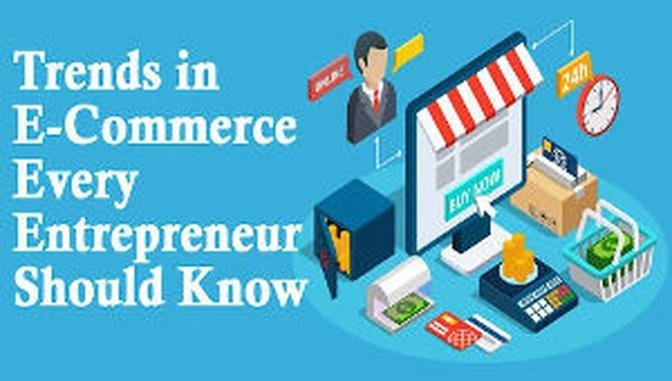In the ever-evolving world of e-commerce, entrepreneurs seeking long-term success must stay abreast of emerging trends. Clark Swanson claims that being aware of these trends facilitates the identification of fresh chances for development and innovation and the ability to adjust to a shifting market. Whether you are launching a brand-new online business or looking to enhance an existing one, keeping up with these e-commerce advancements can be essential to its long-term success. Business owners must stay on top of the latest trends to thrive in the digital market and maintain their competitive advantage. Here are some current e-commerce trends that you should be aware of as an entrepreneur:
1. Mobile E-Commerce:
In e-commerce, mobile commerce, or m-commerce, has grown to be a significant force. According to Clark Swanson, there has been a substantial shift towards mobility as more and more people rely on their smartphones for everyday tasks like shopping. The increasing popularity of mobile technology and its ease for users have been the driving forces behind this trend.
This means business owners must ensure their online stores are mobile-friendly. Easy navigation, quick page loads, and a responsive design that fits various screen sizes are imperative. Mobile apps can also improve the shopping experience by providing extra features like push notifications and quick checkout procedures. Adopting M-commerce may give companies a competitive edge, draw in tech-savvy clients, and raise client satisfaction levels.
2. Augmented Reality (AR):
Augmented reality (AR) is revolutionizing how consumers shop online by enabling them to visualize products in their surroundings before purchasing. Customers can use AR to see how home decor, furniture, clothing, and accessories will look on them or in their spaces. By bridging the gap between online and physical shopping, this technology gives consumers a more realistic idea of how a product will behave.
With this interactive shopping experience, customers' confidence may grow, and return rates may decrease. In particular, if their products allow visualization to improve buying decisions, entrepreneurs should consider incorporating augmented reality (AR) technology into their online stores. In a market where there is competition, this not only makes shopping more enjoyable but also distinguishes the company.
3. Personalization:
Personalization has become an essential element of modern e-commerce, as today’s consumers seek shopping experiences that cater specifically to their preferences and needs. This approach utilizes data to customize every aspect of the shopping journey, from the recommended products to the marketing messages a customer receives.
For example, an online store might analyze a customer’s browsing history, past purchases, and search patterns to suggest products that align with their interests, creating a more relevant and engaging experience. Personalized marketing messages, whether through email, social media, or on-site notifications, can further enhance this by offering promotions or content tailored to individual tastes.
4. Sustainability:
With growing consumer awareness of environmental issues, sustainability has become a critical consideration in consumer decision-making. Many customers, especially those from younger generations, are actively looking for brands that show a dedication to environmentally friendly practices. Entrepreneurs can utilize this expanding trend by incorporating sustainability into their company's operations.
Customers who care about the environment can be enticed by providing sustainably produced goods or services as a unique selling proposition. Adopting a sustainable approach helps ensure the company's and the environment's long-term survival and consistency with the consumer's values. reference links: https://www.ganjingworld.com/n....ews/1h1qkc7aqhp3FYef
